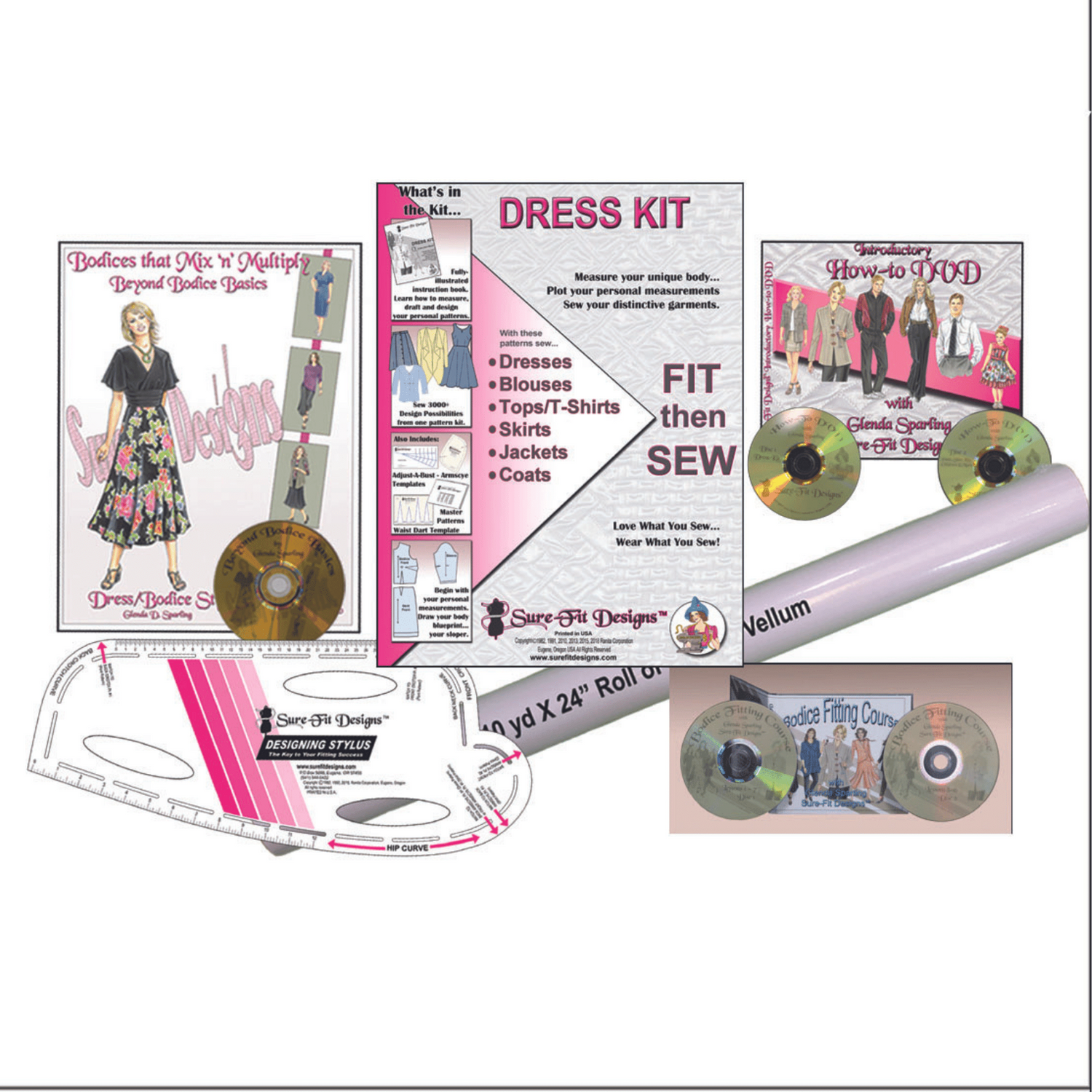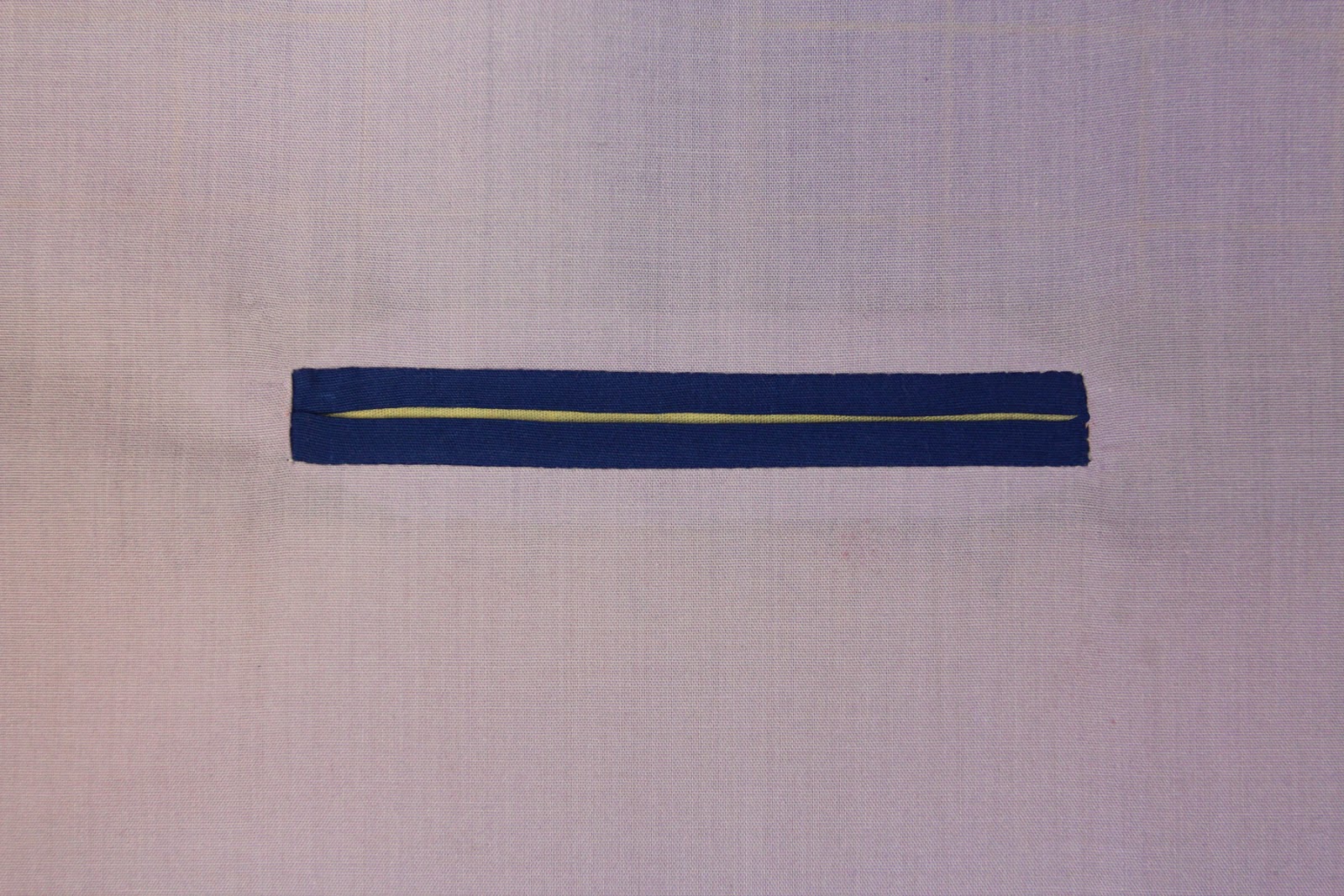
Pick Your Pocket!
Share

(My apology...I'd give credit to the original source for this cute sketch, but can't find a reference.
If anyone knows, I'd be happy to give full credit to the illustrator.)
What would we do without pockets? Any time I design anything without a pocket, I know I'll usually regret it. They're a storage and carrying facility for tissues, keys, cell phones, important notes (that we simply can't lose) and all kinds of other important odds and ends. They can be both decorative and functional – pockets serve both purposes. Personally, I don't like pockets that are purely decorative. They're deceiving - you think you've got that receptacle, but alas it goes nowhere. My philosophy is, if you're going to the effort to design, sew and decorate it, you may as well be able to use it. And when it is functional, I like the inner bag deep enough that those important 'things' won't fall out of it.
Depending on the fabric, garment style and intended purpose, they can lend a look to your garment that is either casual or professional.
There are two main types of pockets: Patch pockets and Bag or “inside” pockets.
And within each category there are a number of variations and alternatives. We’ll take a look at a few of these options.
1. Patch pockets are typically a shaped piece of fabric, finished on all sides, and applied to the right side of a garment. The size and shape of the pocket depends entirely on the look and function you desire. Patch pockets are commonly found on:
Shirts/tops/blouses/jackets at chest level
Jackets at hip level
Front and back of pants


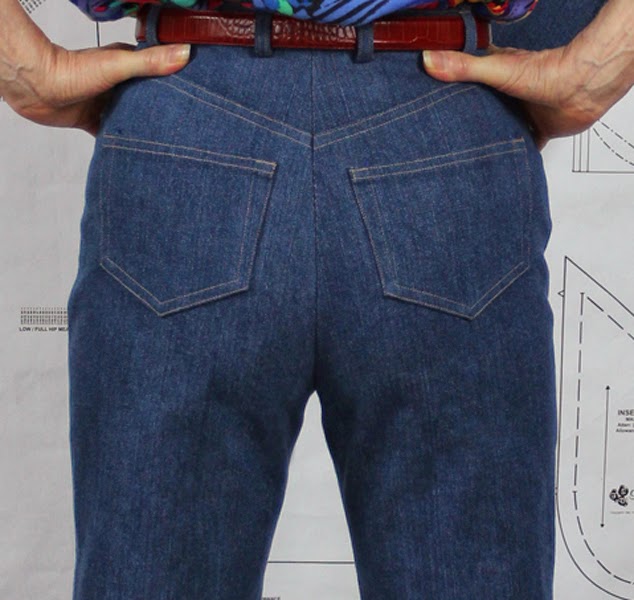
2. Bag pockets, also known as “inside” or “inseam” pockets are sewn on the inside of the garment with access on the outside. In general they are designed to be hidden from view. They can be cut out as part of the garment (lightweight fabrics) or attached to the seam allowance of side seams (heavy fabrics).
Within the bag pocket category, there are three common bag pockets.
a. Inseam pocket – means it is not visible from the right side of the garment.
Inseam pockets are typically located on skirts and pants at hip level and along the side seams on coats and jackets.

b. Wedge or slant angle pocket – where the under pocket is exposed on the right side of the garments. The actual slant or angle of the wedge can take on many different 'angles' and can also have a gentle curve for the opening.
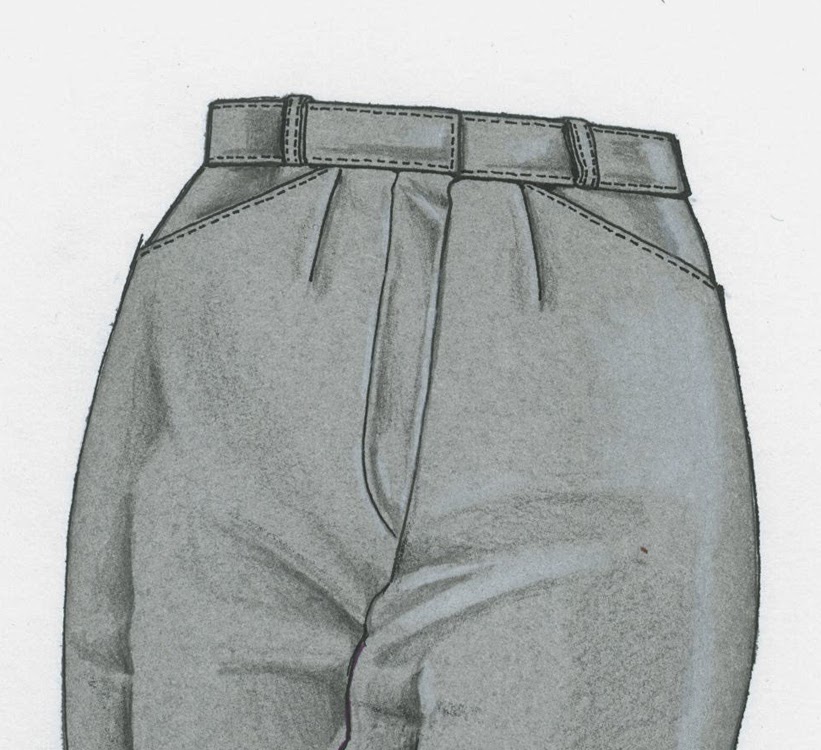

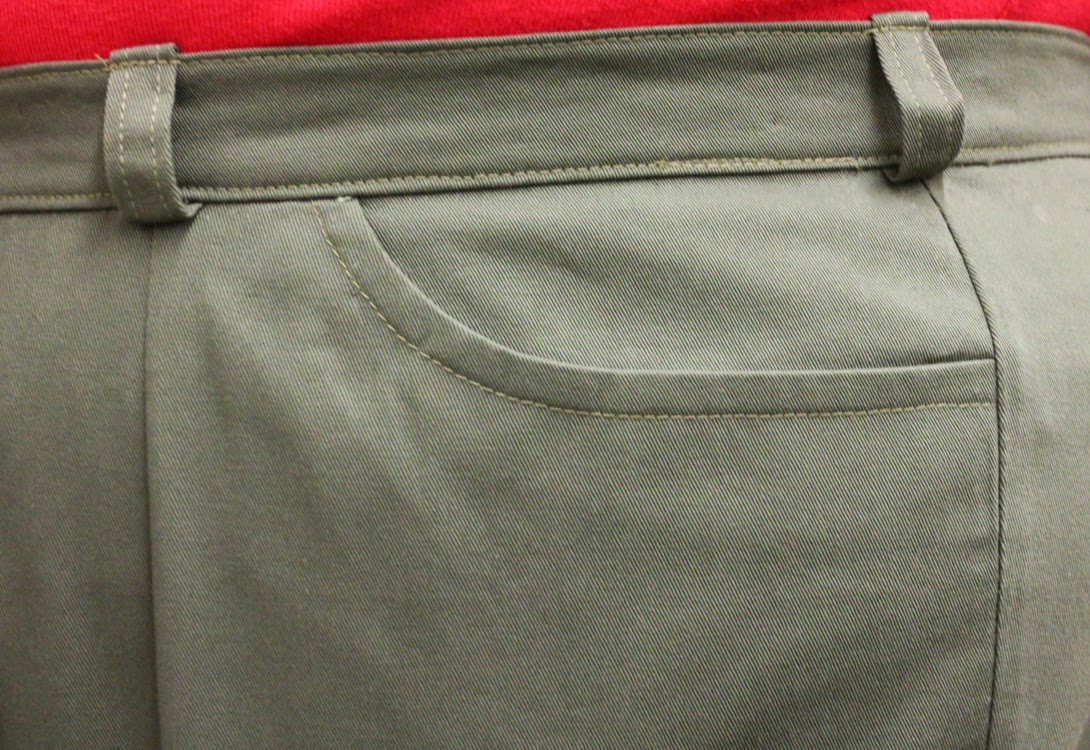
c. Welt pocket – This type of pocket is made by slashing the fabric in the desired pocket location and adding the pocket bag to the inside of the garment. The slashed opening is finished or bound similar to a bound buttonhole.
Or you can insert a zipper as shown in the following illustration.
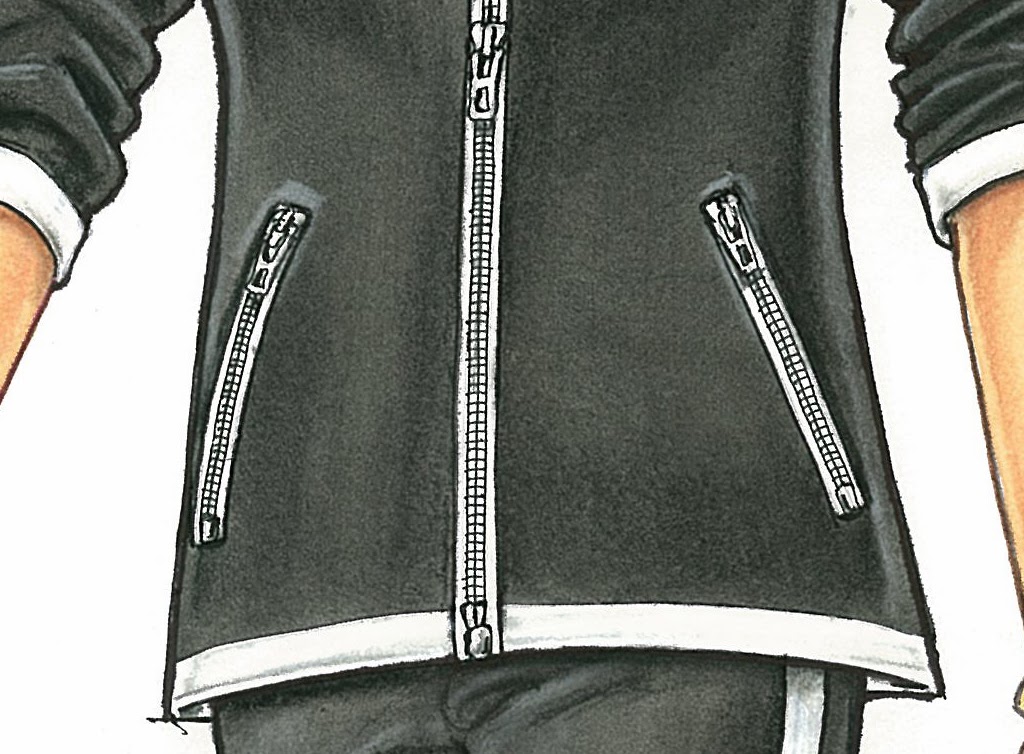
In the next installment, we look at each type of pocket more closely and how to design and sew it together.
